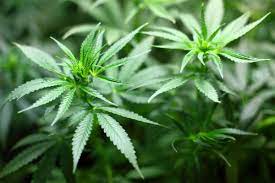Cannabis-Induced Acute Psychosis: A Case Scenario Discussion

This essay analyzes a case scenario involving a 20-year-old male who presents with acute psychiatric symptoms after smoking cannabis. We will comprehensively understand the situation by thoroughly evaluating the patient’s signs and symptoms, considering differential diagnoses, identifying the most appropriate diagnostic test, and applying evidence-based medicine. The primary objective is establishing the most likely diagnosis and proposing the subsequent steps for managing the patient effectively.
Diagnosis of Cannabis-Induced Acute Psychosis Disorder (ICD-10 code: F12.52)
The patient’s clinical presentation, characterized by acute onset of paranoid ideation, perceptual disturbances (such as the belief that bees are crawling out of his body), increased anxiety, agitation, and suspiciousness, is consistent with cannabis-induced psychosis. The patient’s friends reported his recent initiation of cannabis use and no history of psychiatric illness, suggesting a temporal association between cannabis exposure and the onset of psychotic symptoms. These symptoms align with the criteria outlined in the Diagnostic and Statistical Manual of Mental Disorders, Fifth Edition (DSM-5), for cannabis-induced psychosis disorder. The patient’s intact memory and orientation exclude the possibility of delirium, while the absence of neurological abnormalities rules out any organic etiology.
Differential Diagnoses from Cannabis-Induced Acute Psychosis: Delirium, Schizophrenia, Bipolar Disorder
a) Delirium: The patient’s intact memory and orientation, alongside the absence of neurological abnormalities on examination, make delirium an unlikely diagnosis. Furthermore, fever is typically characterized by a fluctuating course, altered level of consciousness, and attention deficits, which are not observed in this case.
b) Schizophrenia: Although schizophrenia is a differential diagnosis for Cannabis-Induced Acute Psychosis, the patient’s symptoms have a clear temporal relationship with cannabis use, and there is no evidence of a prodromal period or chronicity, which are characteristic of schizophrenia. Additionally, the patient’s friends did not report any pre-existing psychotic symptoms or functional impairment before cannabis use.
c) Bipolar Disorder with Psychotic Features: The absence of previous mood episodes, a family history of mood disorders, or signs of mania make bipolar disorder less likely in this case. Moreover, the temporal relationship between cannabis use and the onset of symptoms suggests that cannabis-induced psychosis is the primary diagnosis.
Optimal Approach Cannabis-Induced Acute Psychosis: Urine Drug Screening & Supportive Care
Best Diagnostic Test: The most appropriate diagnostic test to confirm recent cannabis use is a urine drug screening. This test can detect the presence of delta-9-tetrahydrocannabinol (THC), the primary psychoactive component of cannabis, in the patient’s urine. Although a positive result does not establish causality between cannabis use and psychosis, it provides supportive evidence for diagnosing cannabis-induced psychotic disorder. A urine drug screen is cost-effective, non-invasive, and readily available, making it a valuable tool in this clinical scenario.
Next Step: The next step in managing this patient involves a comprehensive medical evaluation and providing supportive care. The primary objective is to ensure patient safety and alleviate distressing symptoms. The initial assessment should include a thorough physical examination, laboratory investigations (urine drug screening), and a mental health evaluation. Collaboration with a psychiatrist is crucial to determine the need for psychiatric hospitalization, pharmacological intervention, and ongoing psychiatric care. Additionally, psychoeducation for the patient and his friends regarding the potential risks of cannabis use, especially in vulnerable individuals, should be provided. Engaging the patient in substance abuse counseling and offering resources for further support can also be valuable.
In conclusion, The scenario describes a 20-year-old male exhibiting Cannabis-Induced Acute Psychosis symptoms following cannabis use. By carefully evaluating the patient’s signs and symptoms, considering relevant differentials, selecting appropriate diagnostic tests, and determining the next steps based on evidence-based medicine, the most likely diagnosis is a cannabis-induced psychotic disorder. This diagnosis highlights the importance of recognizing the potential psychiatric consequences of cannabis use, particularly in individuals with limited exposure or vulnerability. Effective management involves a multidisciplinary approach, encompassing medical evaluation, psychiatric consultation, and supportive care, emphasizing patient safety, symptom alleviation, and long-term treatment planning.
References for Cannabis-Induced Acute Psychosis
Di Forti, M., Quattrone, D., Freeman, T.P., Tripoli, G., Gayer-Anderson, C., Quigley, H., Rodriguez, V., Jongsma, H.E., Ferraro, L., La Cascia, C., La Barbera, D., Tarricone, I., Berardi, D., Szöke, A., Arango, C., Tortelli, A., Velthorst, E., Bernardo, M., Del-Ben, C.M. and Menezes, P.R. (2019). The contribution of cannabis use to variation in the incidence of psychotic disorder across Europe (EU-GEI): a multicentre case-control study. The Lancet Psychiatry, [online] 6(5), pp.427–436. doi:https://doi.org/10.1016/s2215-0366(19)30048-3.
Marconi, A., Di Forti, M., Lewis, C.M., Murray, R.M. and Vassos, E. (2016). Meta-analysis of the Association Between the Level of Cannabis Use and Risk of Psychosis. Schizophrenia Bulletin, [online] 42(5), pp.1262–1269. doihttps://doi.org/10.1093/schbul/sbw003.
Murray, R.M., Quigley, H., Quattrone, D., Englund, A. and Di Forti, M. (2016). Traditional marijuana, high-potency cannabis, and synthetic cannabinoids: increasing risk for psychosis. World Psychiatry, 15(3), pp.195–204. doi https://doi.org/10.1002/wps.20341.
Radhakrishnan, R., Wilkinson, S.T. and Dâ€TMSouza, D.C. (2014). Gone to Pot – A Review of the Association between Cannabis and Psychosis. Frontiers in Psychiatry, [online] 5. doihttps://doi.org/10.3389/fpsyt.2014.00054.
Cannabis-Induced Acute Psychosis





